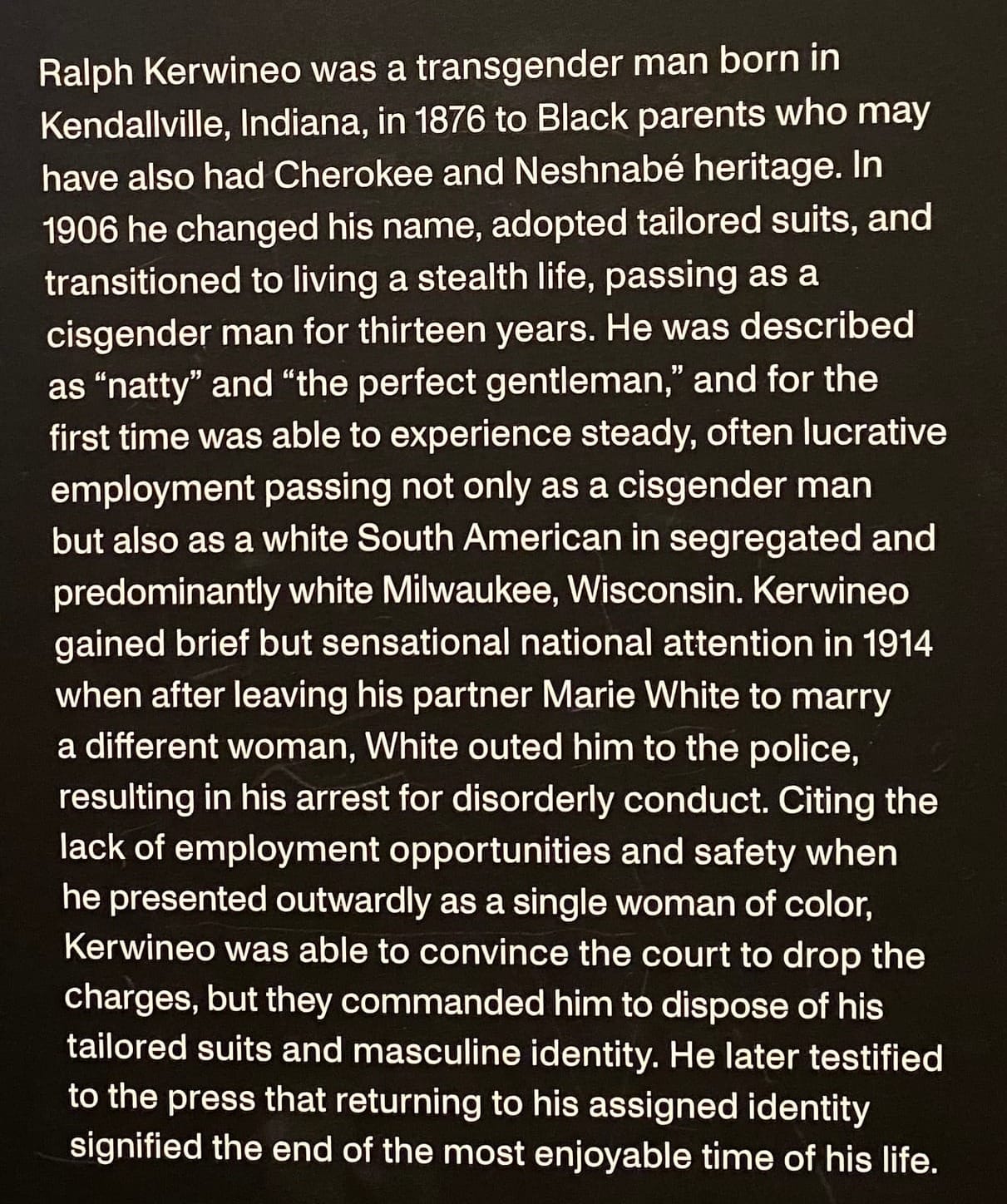#55: Another summer, and Tom Cruise is still insane
Death By Consumption
5/20/25 - 5/26/25
Summer has arrived, and my armpits are already having a terrible time! The rest of me, so far, is loving it, but I know we're quickly steering into the days where I just sweat for 2-3 months nonstop, and I am now facing the fact that I wasted the last 9 months and failed to befriend anyone with a pool. What have I even been doing?
I know we have bigger issues in this upcoming New York mayoral primary (New Yorkers, please vote for Zohran, I truly can't handle Cuomo as our mayor — among other problems I have with him, he just said his favorite NYC movie was Seinfeld! What?? And he couldn't even name a single Italian restaurant in the city!) but I think the candidates should spend some time campaigning on finally using all our available roof space. Why is it so hard to find a rooftop bar, let alone a combo rooftop pool/bar? We should literally have one on every single building in the city. (Even better: use the profits from the rooftop bar to keep the apartments in the building affordable! Wait should I run for mayor?) All this free, breezy space up there, and we're all stuck down here on the hot pavement? Are rich people secretly hanging out on all the rooftops without us?
We've got a consumption grab bag this week, as I saw two wildly different new movies, suffered through the end of the latest season of Survivor, read two very fun novels about how the internet has really fucked us all up, went to a museum, and overheard some delicious gossip over some delicious pasta.
Mission Impossible: The Final Reckoning (2025) — at Nitehawk Prospect Park
This new Mission Impossible might have been the longest movie ever made, but I still enjoyed it despite it not being, you know, good. It's extremely silly, like a Scary Movie parody of Mission Impossible — there are at least three separate scenes in which a group of people planning an operation explain the entire thing to the audience while completing each other's sentences, like:
Tom Cruise: So we're going to have to...
Hayley Atwell: ...get in and out in 15 seconds, yes.
Ving Rhames: But what about...
Simon Pegg: ... the alarm system?
Random guy who's going to die in 5 minutes: I've got it covered. You just worry about the...
All of them, in unison: ...AI-controlled lasers. Right.
The entire movie is basically a scene like that, followed by a truly stunning action sequence, and then Esai Morales randomly cackles and twirls his mustache before running away. Repeat those sequences 5-6 times, and you've got yourself a movie! This whole film needed a lot less yapping about corny nonsense (please stop calling the evil AI "the Entity," I'm begging you) and a lot more blowing shit up.

Whatever used to be human inside Tom Cruise is completely gone now, making it impossible for him to disappear into a role, so every time a character calls him "Ethan" I experienced a brief moment of confusion. He has obviously always been deeply insane, but now there's a constant unhinged glint to his eyes that adds a level of surreality to the entire experience. He's become the kind of actor who is unable to believably perform, say, standing in a room and talking to other humans — watching him try to engage authentically with another person takes me deep into the uncanny valley, like when Mark Zuckerberg laughs. But when Tom Cruise is clinging to a propeller plane as it weaves its way through a jungle canyon? Well, that's just classic cinema, baby! He might be the only actor in the world who feels like he does all his stunts for real, but does all his dialogue via CGI.
So, you know, it's not a good movie, but it is mostly fun, even if it feels like the movie must be at least 5 hours long. We need to pass a law that mandates intermissions on movies over two and a half hours! I'm sick of it!!!
Love (2024) — at Film Forum
Love – which is a truly terrible name for a movie, if only for SEO reasons — is a Norwegian film, part of a "thematically linked trilogy" (the other films are called Sex and Dreams, so I guess they really don't care about googleability) that have been compared to the Before Sunrise trilogy. Love follows two colleagues in Oslo, a straight female urologist and a gay male nurse, and we simply watch them try to work their individual relationship and sexual issues out for two hours.
It's a quiet, thoughtful film, one that largely consists of people discussing intimacy in beautiful Nordic interiors, usually while overlooking some sort of gorgeously forested island. (I had the thought that if this movie were set in, say, New York and everyone spoke English, I would have probably found it deeply annoying.) It's one of those movies where the only major dramatic acts are, like, someone unexpectedly squeezing someone's ass in a flirty way.
The characters feel like real people, in a way that makes even their out-of-character actions make sense. All of us tend to do things that don't make sense with our larger vision of ourselves, whether intentionally or impulsively, but capturing that in fiction is easier said than done — far too often, it feels like a character is acting out of character simply to move the plot along. But in Love, we get to know the characters so intimately that we understand why they're behaving in inconsistent ways, which makes them feel all the more real. That's hard to pull off!
Love also made me want to live in a city that relies more on its waterways than New York — is everyone in Oslo hooking up on ferries all the time?! Please, Norwegian readers, weigh in.
Survivor 48 — on CBS
We are finally free from one of the most insufferable Survivor seasons of all time. I barely made it out of this season alive! I could write literally 10,000 words on this, so I'll try to rein myself in, but I think this season really exposed the faults of Survivor production post-pandemic: they like their players too much! Gone are the days of trashy mid-2000s reality TV, where cast members were chewed and spit out by the machine, produced to look like assholes or idiots or both. Now, Survivor is much more interested in protecting the players, which, sure, is better for their mental health, but makes a worse TV product. Unfortunately, reality TV that is both ethical and compelling may not be entirely possible!
This season could have been interesting, with simply some different editing and storytelling — particularly around the relationship between noble firefighter Joe and his surrogate island daughter Eva, the first "openly autistic" (a deeply insane phrasing the show kept using) Survivor player. All season, this duo was lauded as the moral and emotional center of the show, which unfortunately, in the Survivor of 2025, meant sanding down any of Joe or Eva's rougher, more interesting edges. We'd see flashes of Joe's paranoia, ego, and anger, but only briefly, and it was almost never discussed by other contestants (though surely it was).
And, even worse, we'd see Eva — a young but already very successful woman, who plays on the men's hockey team at Brown while also getting a PhD while also working for the Navy — get extremely frustrated at losing a challenge or failing at something, but the show would paint her frustration as just a symptom of her autism. Which, honestly, felt kind of insulting! Eva has autism, yes, but she also is clearly not used to failing at things, having been very successful at many things in her life, and those high standards she sets for herself are an enormous part of personality (and, for that matter, a key part of the Survivor experience, a show where 1 person wins a million dollars, which means 17 other people lose a million dollars). But the show, sadly, was not brave enough to explore the complexity of a person with autism, and instead just wanted her to be a blandly inspiring figure. As a result, Eva and Joe's personalities and relationship were removed of all their rough edges, making the two central characters of the season one-note and, frankly, kind of annoying. It was a bummer!
Unfortunately, I was ready to say that at least we got through the low point of Survivor, but with the cast of season 49 heavily featuring a man who calls himself fucking RizGod, and the reported news that THE Survivor queen of controversy Elisabeth Hasselbeck dropped out of filming season 50 last-minute (not to mention the many, many other legendary casting snubs), I fear the Survivor slump is only going to continue. We're in the trenches! But I've given 25 years of my life to this show, so what's a few more years?
Perfection, by Vincenzo Latronico (2025) — paperback
Perfection is the book of the summer, I'm ready to predict — one that is destined to become an accessory and a prop by cultural people in the know, who may or may not be aware that the book is satirizing their entire existence (or, if they are aware, they won't care — you can't make fun of me if I'm in on the joke!).
But, really, I'm part of the problem, because I loved the book, despite seeing myself in much of it, and hating that fact. The plot is minimal — two elder Millennials, from a Southern Italian country that's probably Italy but doesn't matter, move to Berlin, where they live a cultured, curated, Instagrammable life, which leaves them feeling vaguely empty and aimless. The book is only something like 120 pages, with many of those pages largely inventories of Millennial signifiers — monstera plants, New Yorkers, Taschen coffee table books. It's a bleak book, one that finds its bleakness in the vapidity of modern life, and one that I practically winced as I read, constantly pausing to assess myself: is he writing about me? No, I'm better than these people, surely. Right?
It's a book that flies by as you read it, a blur of brand names and gorgeous, empty images, but one that — forgive the corniness — reads you as much as you read it. It's a book that seems to know that it is destined to become a cultural signifier for the exact people it's satirizing (the countdown until Gigi Hadid is papped carrying it starts now), and it's okay with that. I found it unexpectedly inclusive and forgiving, treating the main couple kindly, and largely blaming their dissatisfaction on the world at large, rather than something deeply wrong with them. I found myself cringing throughout the book in the way I cringe through my therapy sessions, squirming and wanting it to stop, but also feeling the uncomfortable giddiness that comes from being seen. And now, here I am, writing about it, in a newsletter in which I playact at being a cultural curator. So, you know, Perfection got my ass, and it'll get yours, too.
Rejection, by Tony Tulathimutte (2024) — library ebook
If Perfection is a quietly brutal critique of modern life, Rejection is its angry, violent cousin. Called the "first great incel novel," this book isn't really a novel, but is instead a collection of vaguely connected stories, almost all of which deal with extremely sexually frustrated people struggling to connect with people — the titular rejection, which happens time and time again.
The first story follows the typical character you'd expect — a self-described feminist man, who grows increasingly upset at women rejecting him, with predictably horrible results — but the characters in subsequent stories get more unexpected and interesting. We've got a woman who becomes obsessed with a one-night stand, a repressed gay virgin, a genderless person who mostly just wants to exist on the internet, and so on. The final story is a fake rejection letter from a publisher, explaining why all the stories in the book don't work. It's a book that twists in on itself, damning not just the characters but the entire internet, and our entire way of living, until it circles back and damns you and also the author himself, for good measure.
When I write it out like that, I understand how this sounds like the most unbearable book ever written. I get it! And yet, the stories are so pitch-perfect, so well attuned to how most of us live these days (it's a small thing, but one story captures the tone of a chatty girls' group text more perfectly than anyone ever has before). But they're more interesting than a simple condemnation of the bleak flattening of life via the internet: the stories simply use the concept of rejection and alienation-via-social-media to explore the much richer, much more universal territory of shame and loneliness and the gradual slide from there into feelings that are much, much worse.
These stories aren't fun, exactly, but I did have fun reading the book. Weirdly, I would say the book is more fun than Perfection, even though no one really gets harmed at all in Perfection, and everyone in Rejection is a split-second away from annihilation of some form. (This is a book in which one character's sad ejaculation is described as falling out of him "like a touchless soap dispenser.") I feel like the vast majority of writers would flop hard at writing stories like this without making them excruciatingly annoying (I still can't believe the final meta fake rejection letter worked at all), but I'm very happy that Tony Tulathimutte pulled it off.
"Sargent & Paris" and "Superfine: Tailoring Black Style" — at The Met
On my birthday last week, I took off from work and went on a little solo date to The Met, where I saw the two newest exhibitions. The John Singer Sargent exhibition is surprisingly good, showing you his journey from when he arrived in Paris as an eerily talented 18-year-old painter, leading up to his most notorious work, the scandalous painting "Madame X" (a woman showing her shoulders?! The horror!). I mostly enjoyed the way the Met skirted around Sargent's preference to paint either strong, boundary-pushing women, or very handsome men. Hmmmmm, what could that mean??? I know we should refrain from pushing modern ideas of sexuality on figures from the past, but, come on, would a straight man paint THIS:

Down the hall from the Sargent exhibition was the Black tailoring exhibition from this year's Met Gala, which was absolutely packed with people, but from what I could see, I enjoyed it! It was more historical than I expected (he says, about a museum exhibition), and I found the sections from the mid- to late-1800s fascinating, particularly around the way Black fashion evolved in response to slavery and emancipation. Also, I need a full book written about this trans man, STAT:

Spaghetti carbonara — at Via Quadronno
Before The Met, I had a solo birthday lunch at Via Quadronno, an old school Italian neighborhood joint on the UES, where I sat at a tiny table crammed between various ladies who lunch. While all the ladies around me were enjoying salads, I got a lot of attention as my heaping bowl of $30 spaghetti carbonara traveled across the room to my table. "You win lunch," one of the women next to me said in a thick New York accent that sounded like money.
"Well, it's my birthday, so I figured..." I said. I feel like a child anytime I have to say the phrase "it's my birthday," and I could feel my face going red. But the women squealed with delight and wished me a happy birthday, before turning right back to their conversation. Even though my table was — at most — 2 inches from theirs, we pretended as if we hadn't just interacted, like proper New Yorkers. A brief moment of shared joy and camaraderie, and then we're dead to each other.
I pretended to read my book while I eavesdropped on their conversation, as one woman complained about her three daughters. The eldest daughter's boyfriend "will not leave my house," and the younger daughter has a horrible case of acne that recently popped up ("we're going to have to laser her face"), but the true gossip session was reserved for the middle daughter, who returned from UCLA having gained the Freshman 15.
"I don't even know how they gain that much anymore, it's not like they drink beer," her friend said.
"She's begging me for Ozempic," the woman continued, "But I'm getting her a nutritionist instead. She needs to learn that the best way to lose weight is—"
And they both finished the sentence, in unison: "To not eat!"
Next to them, I slurped down what must have been a pound and a half of thick, creamy carbonara, and a gigantic glass of white wine, feeling simultaneously shameful and giddy, and I was sad to leave without getting to hear the rest of their gossip.